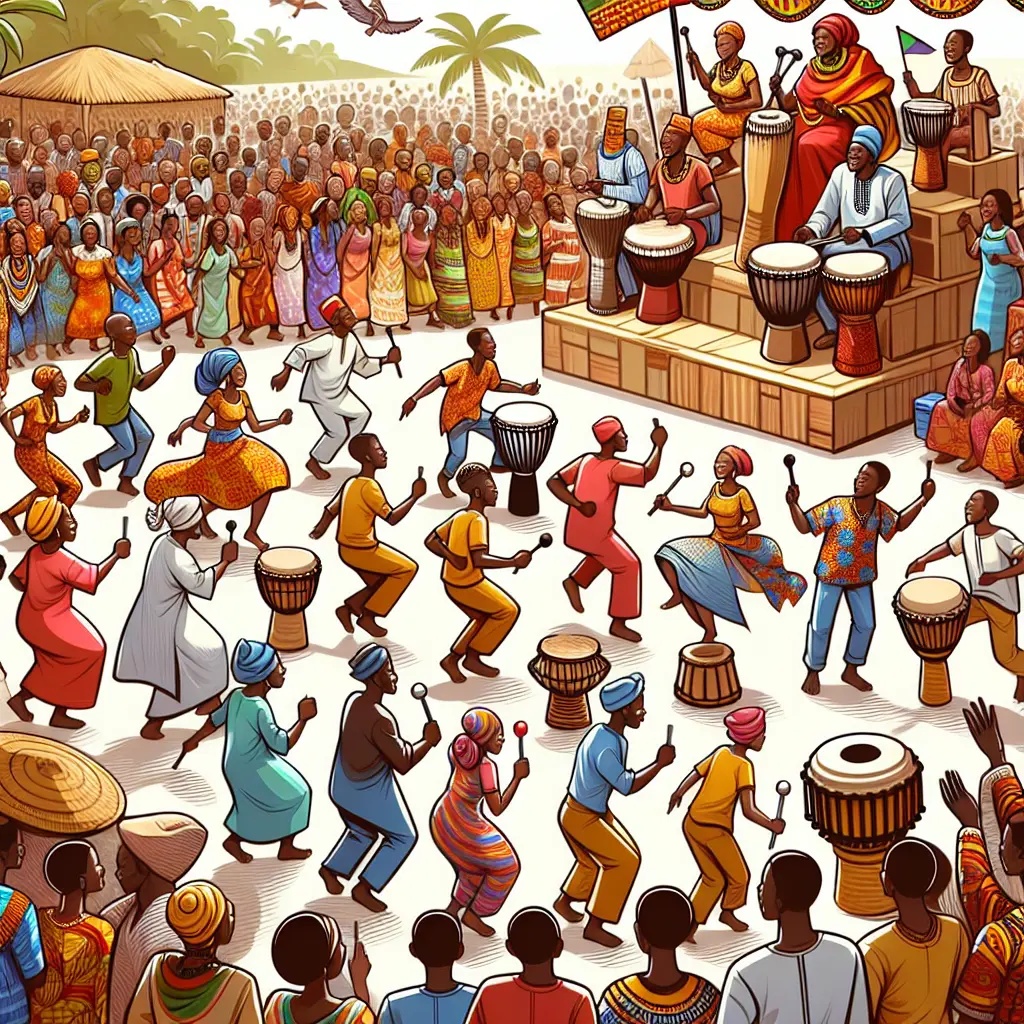
African cultural festivals are vibrant celebrations of the continent's rich heritage, where music plays an indispensable role. These festivals go beyond entertainment, serving as profound expressions of African cultural identity and heritage. This section explores how traditional African music and modern influences combine to create a dynamic cultural tapestry.
Traditional African Music: The Heartbeat of the Festivals
Traditional African music is deeply embedded in the daily lives of its people, reflecting the soul of diverse cultures across the continent. Instruments like the djembe and kora are more than just musical tools; they are threads weaving together stories, history, and community bonds. These sounds define African festival performances, bridging past traditions with present-day practices while enhancing communal bonds and reinforcing shared values and beliefs.
The Cultural Significance of Music in Africa
In African celebrations, music transcends mere entertainment; it serves as a powerful vehicle for storytelling and a keeper of history. This role is similar to the impact UK garage music has had in shaping cultural identities in the UK. African festival music traditions emphasize music's role in defining cultural narratives and identities, illustrating its significance in preserving cultural heritage.
A Modern Influence: Global Connections
In recent years, African cultural festivals have embraced global influences while retaining their unique identity. Like the Toronto International Film Festival that highlights global cultural exchanges, African festivals often feature artists blending traditional sounds with contemporary genres. This fusion creates a dynamic cultural experience that resonates with international audiences.
Music as a Unifying Force
One of music's most profound impacts on African culture is its ability to unite communities. Festivals serve as platforms where diverse groups gather to celebrate shared histories and futures. This unifying power is reflected in global events like World Indigenous Day, which focus on fostering community spirit and protecting indigenous rights.
The Globalization of African Festival Music
The globalization of African festival music aligns with broader trends where cities like Shanghai open up to international tourism through cultural initiatives. African festivals have become global attractions, drawing visitors eager to experience the vibrant culture, music, and dance defining these events.
The Impact of Music on African Culture
Music significantly impacts African culture by enhancing communal bonds and reinforcing shared values. It acts as a cultural touchstone connecting individuals to their heritage. The launch of new cultural agencies highlights the growing recognition of culture's role in marketing and storytelling, emphasizing the importance of integrating cultural elements like music into broader narratives.
Music and Rituals in Africa: A Timeless Connection
Music and rituals in Africa are intertwined, creating an unforgettable tapestry of sound and movement that defines festival performances. These rituals celebrate life and serve as a means to communicate with ancestors and the spiritual world, underscoring music's integral role in African spiritual life.
Conclusion: Celebrating African Cultural Heritage Through Music
As we explore the multifaceted role of music in African cultural festivals, it becomes evident that these events are more than mere celebrations. They are vibrant expressions of African cultural heritage, highlighting the profound connection between music and African identity. Traditional African music's power to tell stories, unite communities, and celebrate shared values is at the heart of these festivals.
In conclusion, African cultural festivals serve as a testament to the enduring significance of music in African culture. They remind us of music's power to transcend borders, connect communities, and celebrate shared human experiences. As we continue to explore this enchanting world where music and rituals create an unforgettable tapestry of sound and movement, we gain deeper insights into its contribution to African cultural heritage. For further exploration, the African Cultural Heritage Foundation offers detailed insights into traditional instruments and their significance.
With warm regards and a passion for cultural discovery,
Clara Mitchell